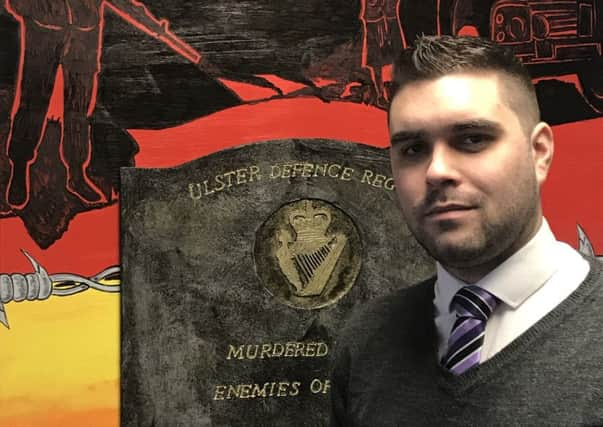Terror victims' '˜fear and apprehension' over benefit assessments


The Family Research and Policy Unit (FRPU) believes those injured as a result of terrorism require a more sensitive approach from assessors facilitating the UK-wide switch from Disability Living Allowance (DLA) to Personal Independence Payment (PIP).
Unlike DLA, the new PIP benefit focuses more on how well someone can physically function on a day-to-day basis, with less emphasis on an actual diagnosis.
Advertisement
Hide AdAdvertisement
Hide AdAlan Lewis of FRPU said the current one-off interview/assessment process – being carried out by the Capita company – has the potential to retraumatise terror victims and is causing “fear and apprehension” among those already suffering.
“We strongly believe Capita staff are not best placed to assess the overall eligibility of Troubles-related victims,” he said.
“If victims are to be formally interviewed, we want an assurance that Capita staff will be suitably trained in dealing with victims of the Troubles, ensuring they are not retraumatised or belittled.
“Through the outworkings of the Fresh Start Agreement, we have an opportunity to establish a support-based system which will legislate and protect victims who have suffered for many years. It is vital that every effort is made to get it right.”
Advertisement
Hide AdAdvertisement
Hide AdMr Lewis said some of his group’s clients had felt humiliated when being reassessed for benefit entitlements, prior to Capita being awarded the contract, and believes safeguards should be put in place.
A spokeswoman for Capita said they work closely with CVSNI and other stakeholders to ensure staff have a “strong understanding of the needs of the people” being assessed.
The Markethill-based charity met with the victims commissioner on Wednesday to discuss their concerns.
Mr Lewis added: “At the very least, outsourced staff should be trained and acutely aware of the sensitivities surrounding victims and survivors. We cannot have victims retraumatised in the course of what should be a basic human entitlement. These people have suffered greatly, let’s collectively do all we can to safeguard their rights and entitlements.”
Advertisement
Hide AdAdvertisement
Hide AdThe victims’ advocate also said that the political stalemate at Stormont has further alienated the victims sector, with no elected ministers “to ensure fair and accountable governance of the social benefits system”.
A spokeswoman for the Commission for Victims and Survivors NI (CVS) said they are “acutely aware” that many victims and survivors are “currently living in fear and anxiety” in relation to ongoing and impending assessment processes.
“It is our position that those who have suffered serious injuries as a result of a conflict-related incident, and who have already provided adequate and appropriate evidence of their conditions, should not be subjected to a further full re-examination.
“The commission has consistently advocated, at ministerial level, for the application of an exemption policy to these victims and survivors to reduce levels of stress and anxiety associated with any assessment process.”
Advertisement
Hide AdAdvertisement
Hide AdIn March, the Department for Communities launched a call for evidence which formed the basis of an independent review of the PIP assessment process.
CVSNI provided a response to the department review of how the assessment is working in Northern Ireland.
The commission spokeswoman added: “Our response was informed by engagement with individual victims and survivors, the Victims and Survivors Forum and feedback obtained by the Victims and Survivors Service from organisations funded to deliver welfare advice.”
You can read the CVSNI response to the DfC review here
A Capita spokeswoman said they provided a “professional and empathetic service” for people applying for PIP and fully recognise the importance and sensitivity of their role.
Advertisement
Hide AdAdvertisement
Hide Ad“Our assessors are healthcare professionals, including ex-NHS employees, and undergo specific training in the needs of victims and survivors, to help them when engaging with those who have suffered trauma because of the conflict,” she said.
“The training builds upon the assessor’s prior clinical knowledge and aims to further develop their understanding of how health conditions affect function and impact on someone’s ability to carry out everyday activities.
“The specific training covers mental health conditions including post-traumatic stress disorder and there is a specific module on victims and survivors. The training highlights the uniqueness of the conflict and the experiences of those that have been directly impacted as a result: eg the individual, relaters and carers.”